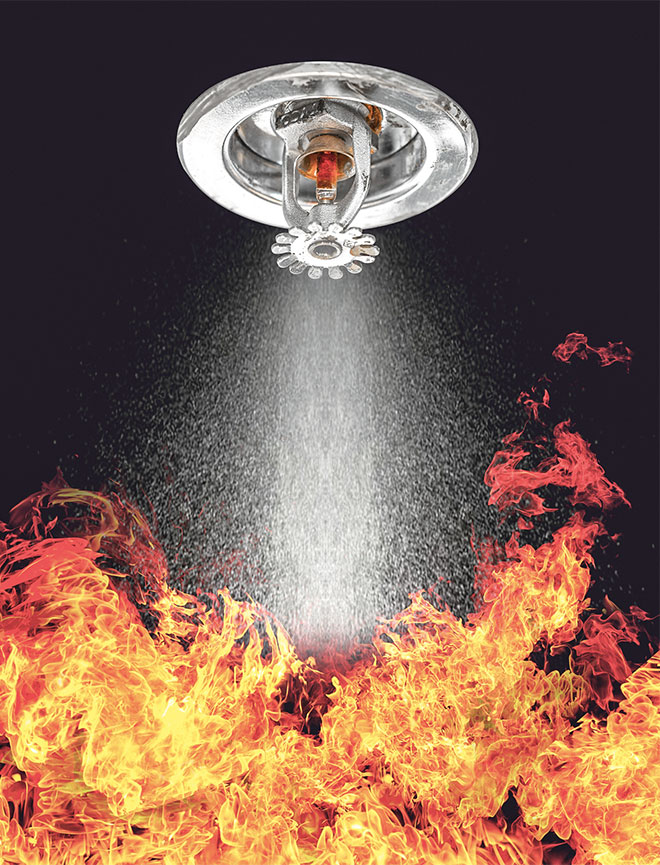The risk of dying in a home fire decreases by about 85% if sprinklers are present. Research shows when sprinklers were present, fires were kept to the room of origin 97% of the time. That means the sprinkler activates and puts out the fire before it has a chance to spread to other places in the home. The National Fire Protection Association and the Home Fire Sprinkler Coalition want you to know these facts.
ONE SPRINKLER IS USUALLY ENOUGH
If a fire starts, the closest sprinkler will activate, spraying water to control the flames, heat and deadly smoke. That fast control gives you time to escape to safety. In most cases, just one sprinkler is needed.
SPRINKLERS USE LESS WATER
When a sprinkler activates, it flows at a rate of 10-26 gallons of water per minute — a fraction of the water that fire hoses use. Because of the sprinkler’s fast action and lower water flow, property loss in a home with sprinklers is far less severe than in a home without sprinklers.
FIRES BECOME DEADLY IN MINUTES
It takes 9-12 minutes or more for a fire department to get notification, respond and begin fire suppression. In that time, an uncontrolled fire will grow and spread through the home, becoming potentially deadly in two minutes or less. A sprinkler controls the fire before it can spread, protecting residents and firefighters.
SMOKE ALARMS AREN’T ENOUGH
Working smoke alarms are essential in every home. But they can only detect a fire, not fight it. Fire sprinklers detect the fire and automatically control it, saving lives and property.
SPRINKLERS ARE RELIABLE
Fire sprinkler mishaps are generally less likely and less severe than home plumbing system problems. For regions subject to freezing temperatures, proper installation eliminates worries. Maintenance is simple.
TAKE ACTION NOW
Test your smoke alarms and practice your escape plan with your family. If you are thinking of building or buying a home, ask for fire sprinklers. They provide peace of mind, protecting you and your family should you ever face the threat of a home fire.
Learn more at homefiresprinkler.org.
This article is courtesy of Brandpoint.

